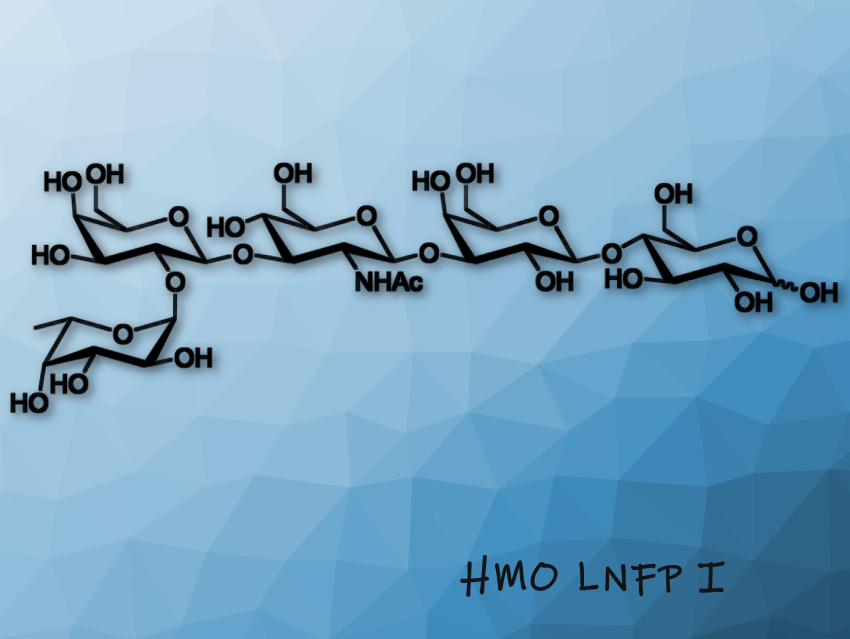Norovirus infections cause severe gastroenteritis in millions of people every year. Breast-fed babies are less likely than bottle-fed infants to get norovirus infections. This protective effect has been linked to human milk oligosaccharides (HMOs). HMOs are complex sugar molecules that are only found in breast milk. Excluding water, they are the third most abundant constituent of human milk after fats and lactose. More than 200 structurally distinct HMOs have been identified. They are important for the development of the intestinal flora. The most abundant HMO is 2′-fucosyllactose (2′’FL).
A norovirus infection requires the recognition of histo-blood group antigens (HBGAs). HMOs can mimic the structures of these natural receptors for the virus on human cells, coat the virus, and prevent it from interacting with its targets. This has been demonstrated for 2′-FL and 3-fucosyllactose (3-FL). Therefore, HMO supplements could help to prevent norovirus infections.
It is possible to produce industrial quantities of 2′-FL by fermentation, and this HMO is already used as a supplement in infant formula products. However, the industrial production of more complex HMOs, which mimic the virus receptors even more closely, is challenging.
Katja Parschat, Jennewein Biotechnologie GmbH, Rheinbreitbach, Germany, and colleagues have developed a large-scale fermentation process for the production of the complex fucosylated HMO lacto-N-fucopentaose I (LNFP I, pictured) in Escherichia coli BL21(DE3) cells.
Highly-purified LNFP I was turned into HBGA-like oligosaccharides by enzymatic conversion. The resulting oligosaccharides were tested in norovirus inhibition assays. The team found that a combination of simple and complex fucosylated structures is more likely to prevent norovirus infections. Further studies are required to determine the best combination of simple and complex fucosylated HMOs for the prevention of norovirus infections.
- Biotechnologically produced fucosylated oligosaccharides inhibit the binding of human noroviruses to their natural receptors,
Sami M. Derya, Holger Spiegelb, Franz-Georg Hanisch, Vasily Morozov, Horst Schroten, Stefan Jennewein, Katja Parschat,
J. Biotechnol. 2020.
https://doi.org/10.1016/j.jbiotec.2020.05.001




